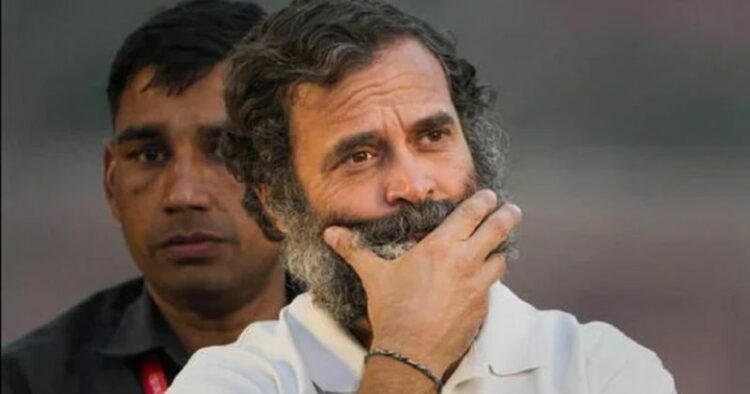Bihar, India: An MP/MLA Court in Bihar’s Patna district has directed Congress leader and former Member of Parliament (MP) Rahul Gandhi to appear before the Court on April 12 and record his statement u/s 313 of the Criminal Procedure Code (CrPC) in the ‘Modi’ surname defamation case filed by Rajya Sabha MP Sushil Kumar Modi.
Sushil Modi filed a criminal complaint against Rahul Gandhi in 2019 u/s 500 of the Indian Penal Code (IPC) over his remarks “how come all the thieves have Modi as a common surname?” made in Karol during a political campaign. Sushil Modi alleged that it was a derogatory remark targeting people having the ‘Modi’ surname. However, Rahul Gandhi got bail in the case in 2019.
Rahul Gandhi’s conviction
On March 23, a Surat District Court held Congress leader Rahul Gandhi guilty in a 2019 criminal defamation case over his remarks on Prime Minister Narendra Modi’s surname.
BJP MLA Purnesh Modi lodged a complaint against Rahul Gandhi’s remarks on the ‘Modi’ surname wherein he repeatedly asked, “Nirav Modi, Lalit Modi, Narendra Modi. How come they all have Modi as a common surname? How come all the thieves have Modi as a common surname?” on April 13, 2019, at a rally in Kolar.
Furthermore, he added, “The name Modi symbolises the collusion between India’s biggest crony capitalist and the Prime Minister of India.” Rahul Gandhi pleaded not guilty in front of the Surat court in October 2019. However, the Surat District Court sentenced Rahul Gandhi to two years imprisonment for his remarks against the ‘Modi’ surname.
Rahul Gandhi’s disqualification
Rahul Gandhi was disqualified from the Lok Sabha following his conviction in the ‘Modi’ surname defamation case. On March 24, the Lok Sabha Secretariat issued the notification of Rahul Gandhi’s disqualification from Lok Sabha.
The notification states, “Consequent upon his conviction by the Court of Chief Judicial Magistrate, Surat in C.C./18712/2019, Shri Rahul Gandhi, Member of Lok Sabha representing the Wayanad Parliamentary Constituency of Kerala stands disqualified from the membership of Lok Sabha from the date of his conviction i.e. 23 March 2023 in terms of the provisions of Article 102(1)(e) of the Constitution of India read with Section 8 of the Representation of the People Act, 1951.”
It is pertinent to note that u/s 8(3) of the Representation of the People Act, 1951, “a person convicted of any offence and sentenced to imprisonment for no less than two years shall be disqualified from the date of such conviction and shall continue to be disqualified for a period of six years since his release,” provides for automatic disqualification of an MP, MLA or MLC from the date of conviction when such elected representative is convicted for not less than two years.
In 2013, the Congress-led UPA Government introduced the Representation of the People (Second Amendment and Validation) Bill, 2013 in an attempt to overturn the Supreme Court’s decision to strike down section 8(4) of the Representation of the People Act, 1951.
Section 8(4) of the Act deferred a sentenced representative’s conviction by 3 months to allow them to appeal before a higher court and prevent disqualification. The UPA Government’s amendment proposed that the convicted representatives would not be disqualified immediately after conviction.
On September 24, 2013, the UPA Government attempted to bring the amendment into effect as an Ordinance before the verdict in Congress ally and RJD supremo Lalu Yadav’s fodder scam case. However, Rahul Gandhi called the Ordinance “complete nonsense that should be torn up and thrown away,” and tore the Ordinance during the press conference. Thereafter, the UPA Government withdrew the Ordinance and the Bill.




















Comments